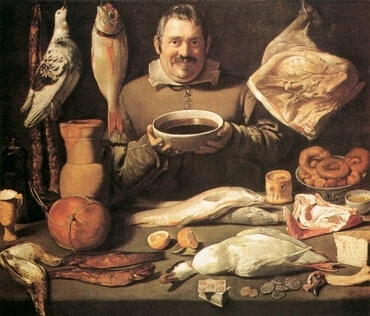1
Und David sprach: Ist noch jemand da, der vom Hause Sauls übriggeblieben ist, daß ich Güte an ihm erweise um Jonathans willen?
2
Es war aber ein Knecht vom Hause Sauls, sein Name war Ziba; und sie riefen ihn zu David. Und der König sprach zu ihm: Bist du Ziba? Und er sprach: Dein Knecht.
3
Und der König sprach: Ist niemand mehr da vom Hause Sauls, daß ich Güte Gottes an ihm erweise? Und Ziba sprach zu dem König: Es ist noch ein Sohn da von Jonathan, der an den Füßen lahm ist.
4
Und der König sprach zu ihm: Wo ist er? Und Ziba sprach zu dem König: Siehe, er ist im Hause Makirs, des Sohnes Ammiels, zu Lodebar.
5
Da sandte der König David hin und ließ ihn aus dem Hause Makirs, des Sohnes Ammiels, holen, von Lodebar.
6
Und Mephiboseth, der Sohn Jonathans, des Sohnes Sauls, kam zu David; und er fiel auf sein Angesicht und beugte sich nieder. Und David sprach: Mephiboseth! Und er sprach: Siehe, dein Knecht.
7
Und David sprach zu ihm: Fürchte dich nicht; denn ich will gewißlich Güte an dir erweisen um deines Vaters Jonathan willen, und will dir alle Felder deines Vaters Saul zurückgeben; du aber sollst beständig an meinem Tische essen.
8
Und er beugte sich nieder und sprach: Was ist dein Knecht, daß du dich zu einem toten Hunde gewandt hast, wie ich einer bin?
9
Da rief der König Ziba, den Diener (Eig. den Knaben, Knappen) Sauls, und sprach zu ihm: Alles, was Saul und seinem ganzen Hause gehört hat, habe ich dem Sohne deines Herrn gegeben.
10
Und du sollst ihm das Land bauen, du und deine Söhne und deine Knechte, und den Ertrag einbringen, damit der Sohn deines Herrn Brot zu essen habe. (W. Brot habe, und er es esse) Und Mephiboseth, der Sohn deines Herrn, soll beständig an meinem Tische essen. Und Ziba hatte fünfzehn Söhne und zwanzig Knechte.
11
Und Ziba sprach zu dem König: Nach allem, was mein Herr, der König, seinem Knechte gebietet, also wird dein Knecht tun. Und Mephiboseth, sprach der König, wird an meinem Tische essen, wie einer von den Königssöhnen.
12
Und Mephiboseth hatte einen kleinen Sohn, sein Name war Micha. Und alle, die im Hause Zibas wohnten, waren Mephiboseths Knechte.
13
Und Mephiboseth wohnte in Jerusalem, denn er aß beständig am Tische des Königs. Er war aber lahm an beiden Füßen.







